Five of the best: Vice-Chancellor awards prizes for best doctoral theses
12 June 2025
The annual Vice-Chancellor's award to the five best doctoral theses of 2024 has been announced.
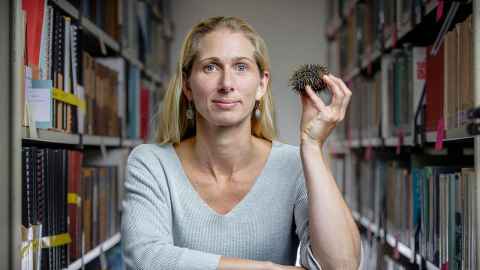
From dance to data, the winners of the Vice-Chancellor’s prize for best doctoral thesis covered diverse subject matter.
In 2024 there were 443 doctoral degrees completed, and 18 nominations were received for the Vice-Chancellors’s prize, with five awards announced.
The winners, celebrating the five most exceptional theses, were Dr Sarah Foster-Sproull (Arts and Education), from the Dance Studies Programme; Dr Zongda Lei (Science) from the Department of Physics; Dr Kelsey Miller (Science) from the Institute of Marine Science; Dr Justin Sobion (Law); and Dr Xiaofei Yang (Engineering and Design) from the Department of Civil and Environmental Engineering.
Criteria for nomination include the demonstrable significance, originality, contribution and excellence of the thesis.
Dr Xiaofei Yang

Xiaofei’s thesis was titled ‘Automated data analysis for bridge visual inspection using deep learning techniques’ and Dr Enrique del Rey Castillo was his main supervisor.
Xiaofei was originally from China, and before he started his PhD he spent three years at the China National Testing Centre of Quality and Safety Supervision for Industrial Buildings and Structures, leading work on more than 50 buildings/infrastructure inspection projects.
“During that time, I experienced first-hand the inefficiencies of manual inspections and the urgent need for scalable, intelligent solutions. This practical experience motivated me to explore how technologies like AI and computer vision could reshape traditional inspection workflows.”
His research explores how artificial intelligence and drones can improve bridge inspections. He developed a system where drones scan bridges and detect damage in real time, zooming in only when problems are found. His work also includes tools that convert drone images and 3D scans into detailed digital models, helping engineers monitor bridge health over time.
To improve AI accuracy despite limited real-world data, Xiaofei created new methods for generating realistic training examples. His research offers innovative, cost-effective solutions for managing ageing infrastructure and reducing the risks involved in manual inspections.
“With ageing bridge networks and increasing demands on maintenance, I saw an urgent need for more scalable and intelligent solutions. This led me to explore how AI, particularly deep learning, could help automate the analysis of visual data captured from bridges.
“Receiving this prize is incredibly meaningful to me. It not only recognises the years of hard work that went into the research but also highlights the growing importance of interdisciplinary solutions for critical infrastructure challenges. I’m deeply grateful to my supervisors, collaborators and the University of Auckland for their support throughout my doctoral journey.
“I’m passionate about bridging engineering and emerging technologies to solve global infrastructure problems. I hope this recognition will inspire other researchers to pursue impactful, cross-disciplinary work.”
Xiaofei has recently started a new postdoctoral role at New York University Abu Dhabi, where his research focuses on using AI and unmanned underwater vehicles to inspect important marine and offshore infrastructure.
Dr Zongda Li
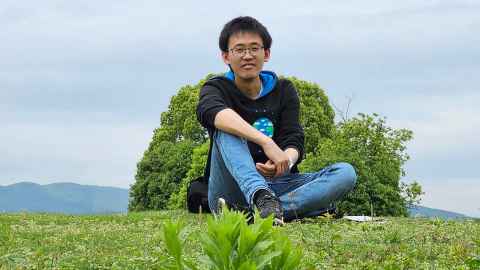
Don’t be put off by Zongda Li’s PhD title: ‘Temporal Cavity Solitons Driven in the Near-Zero and Normal Dispersion Regimes’. Basically, the research is about a type of optical structure known as temporal cavity solitons (CSs). Zongda explains: “They are ultrashort pulses of light that can be maintained forever in an optical resonator, such as a ring of optical fibre. They are important because they serve as ‘ruler’ for frequencies, and they enable precision measurements in a variety of areas, from exoplanet detections to distance ranging.”
Zongda says that because they have limitations, his goal is to find a way to circumvent these limitations. “The outcome of this project is that we found a special form of CS known as the Raman soliton, which addresses many of the limitations of conventional CSs but also has comparatively better performance. For example, we generated Raman solitons with a duration of less than 50 quadrillionths of a second, which are the shortest light pulses generated in passive macroscopic resonators.”
He admits to some serendipity in his research.
“We discovered the Raman soliton by accident when we were playing around with the equipment!”
Dr Sarah Foster-Sproull
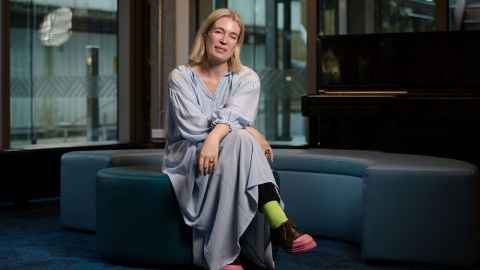
Dr Sarah Foster-Sproull (Arts and Education), from the Dance Studies Programme, has previously said her artistic path has been profoundly influenced by the community of creative women she works with. So her thesis title, ‘Vibrant Dance Power: Locating Vital Materialist Incantations of Thing-power in Feminist Choreography’ makes sense.
“I left high school before my final year to pursue a career as a professional dancer with companies like the New Zealand Dance Company. The idea that I would one day have a PhD was not on my radar, or my bingo card so winning the prize for Best Doctoral Thesis is a major highlight in my career.
“This recognition is also a win for Dance Studies and the Faculty of Arts and Education, because it is a testament to the arts’ capacity to have impact in the world, for its prioritisation of relationships, people, place, collaboration and connection. I am very proud to represent Dance Studies on this list.”
Dr Kelsey Miller
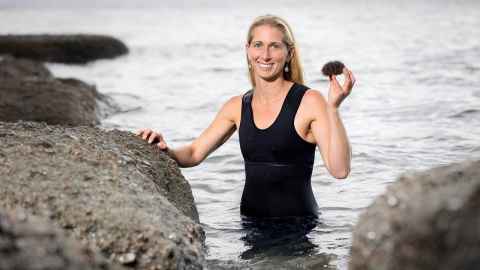
Dr Kelsey Miller (Science) from the Institute of Marine Science has been fighting on the frontlines against the kina barrens taking over large swathes of our coastal rocky reefs.
Her research found that removing kina was extremely effective in rapidly restoring lush forests of the brownish kelp seaweed Ecklonia radiata. Her thesis is titled: ‘Evaluating large-scale sea urchin removal as a potential tool for restoring kelp forests’.
Dr Justin Sobion
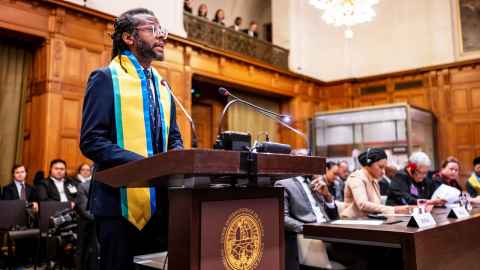
Dr Justin Sobion from Law’s thesis was entitled ‘Earth Trusteeship – A Framework for a More Effective Approach to International Environmental Law and Governance’.
Justin graduated with his doctorate in 2024, and his thesis begins with a quote from politician, iwi leader and activist Debbie Ngarewa-Packer: "The moment you become attached to the water, the ocean, you become guardians, kaitiaki."
Guardianship is a major element of Earth Trusteeship – an idea that posits that the Earth and its resources could be held in trust by states for current and future generations.
The aim of Justin's thesis was to explore whether Earth Trusteeship could provide a framework for a more effective approach to international environmental law and governance, thereby addressing the ecological crisis head-on.
“To be a trustee means you give up some authority because you're acting on behalf of someone else,” he says. “That's a challenge, especially in a world where many states prioritise their own interests.
“Despite these challenges, I think Earth Trusteeship will become increasingly important as the global community grapples with environmental crises.”
Read more about Justin’s work
See the other nominees here.
Media enquiries
Email: mediateam@auckland.ac.nz